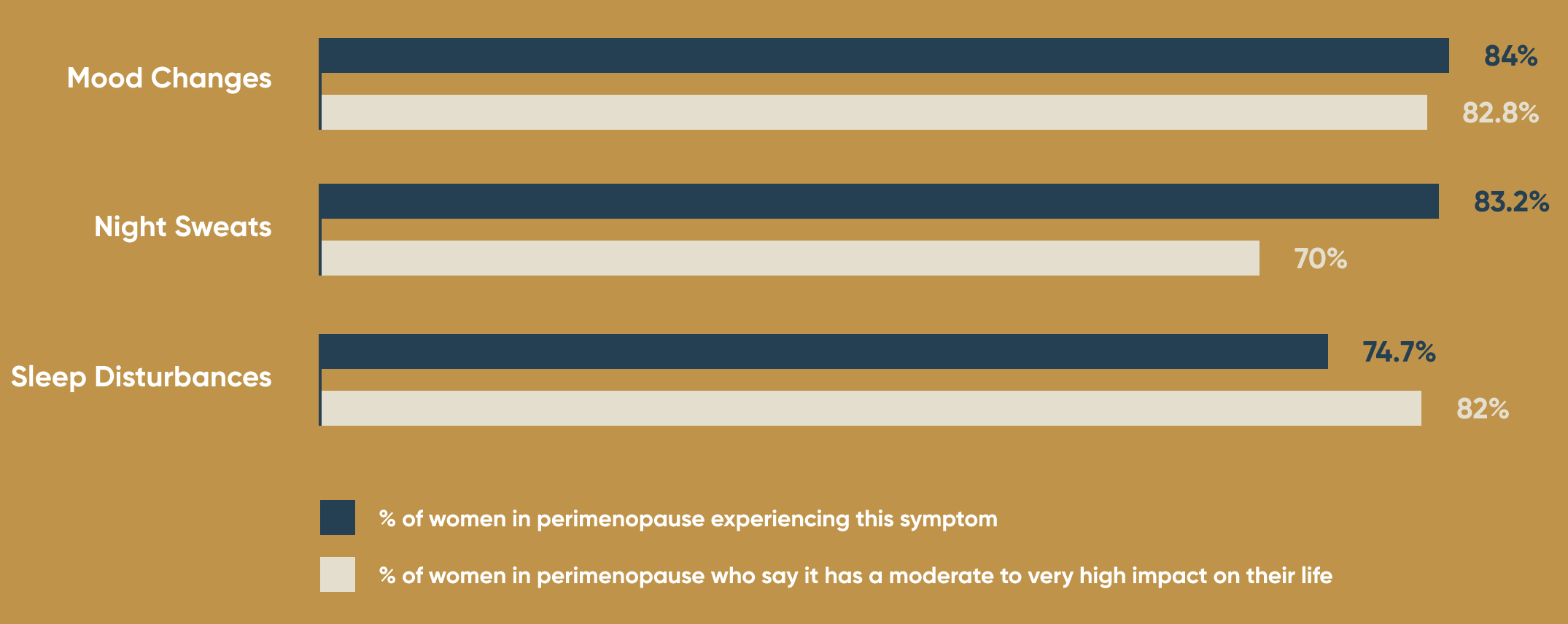
Can Menopause Make You Tired and Anxious?
82% of women reported that sleep disturbances had a high impact on their quality of life in Gennev’s 2021 Women in Menopause Report. And lack of sleep can impact just about everything in our lives. In addition to physical health, it can largely affect moods, productivity, weight, and mental health. There are many reasons women don’t enjoy the restful sleep they once did during this time of their lives. Hot flashes and night sweats, increased anxiety, urinary issues, restless leg syndrome, even new digestive challenges, can all contribute to women having difficulty falling asleep and staying asleep.

Many women also report low energy and a consistent feeling of fatigue that isn’t relieved with more sleep. Like most symptoms in menopause, this may be due in a large part to hormone changes and the downstream effects. Changing levels of estrogen and progesterone interact with the endocrine hormones associated with energy from the adrenal and thyroid. This can be hard on the body, and result in persistent fatigue.
The imbalance in estrogen and progesterone that occurs during menopause can also result in symptoms of anxiety, depression, irritability, mood swings and foggy brain. According to Swapna Vaidya, MD and Executive Medical Director in the MultiCare Health System, reproductive hormones such as estrogen act via steroid receptors in the brain. They also have an effect on different neurotransmitters such as serotonin (a mood regulator), dopamine (active in pleasure and reward centers of the brain). Additionally, studies show estrogen can influence brain areas that regulate mood, behavior, and cognitive abilities. When estrogen declines, we lose its regulating effect on our brain and central nervous system.
If you’re experiencing anxiety that you feel may be attributed to changing hormones, it may help to talk with a menopause specialist to determine how to manage your symptoms. Regardless of the reason, anxiety, persistent panic attacks or anxiety that causes significant impairment in functioning or lead to suicidal thoughts or concerns should be addressed with your physician immediately.
When it comes to menopause symptoms, lifestyle changes can often help provide some relief. And it’s important, now more than ever, to care for your body and lower your risk of chronic disease.
3 Things To Improve Your Menopause Symptoms
Three things that you can do for yourself today to help improve your menopause symptoms include:
1. Get Moving
Movement in midlife and beyond is essential. Being physically active helps lower your risk for heart disease, raises your energy levels and can help you sleep better. It can also boost endorphins to improve your mood and lower stress. Simply walking a little each day can provide noticeable results in your energy and mood.
2. Drink More Water
Lower estrogen impacts your body’s ability to retain moisture. Be sure to stay hydrated to preserve brain function, make skin, hair, and nails healthier, reduce urinary urgency and bladder irritation, relieve menopause nausea and hot flashes, reduce the intensity and frequency of headaches, and ease menopause cramps.
3. Really Pay Attention to What You Eat
Eat plenty of whole grains, vegetables, fruit, lean protein, and healthy fat. Eating smaller meals more frequently might also help keep your energy up.
It’s important that you don’t dismiss any new symptoms you may be experiencing as being due to menopause. Always discuss anything new with your doctor to be sure it’s nothing more serious, as well as to get the care you deserve.


